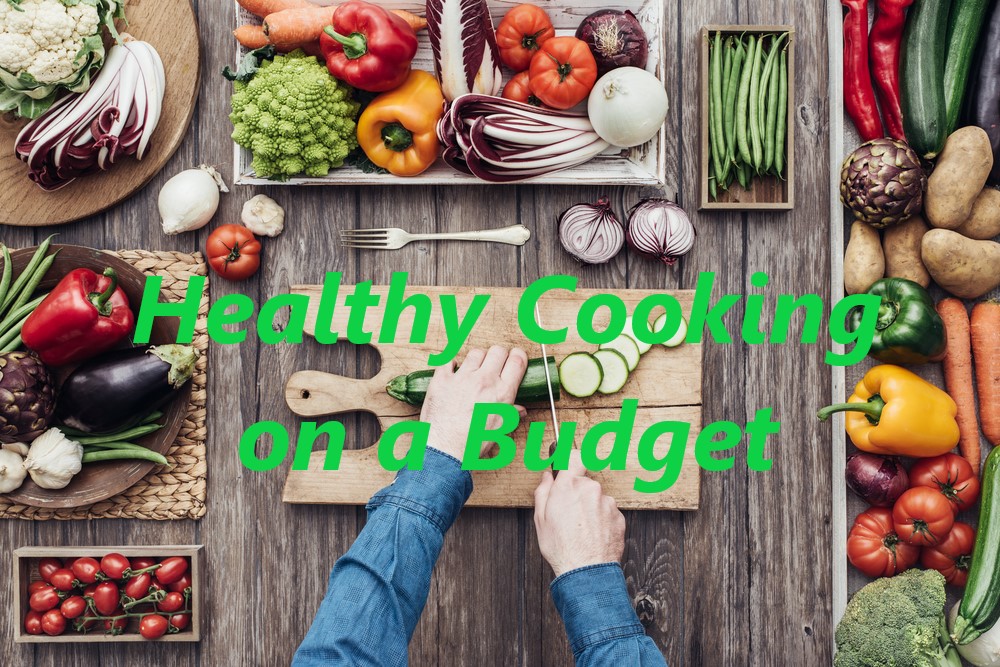
Cooking healthy meals needn’t be expensive
Have you ever gone to the supermarket and bought ready meals, thinking it would be so much cheaper than cooking at home? Maybe you ordered your regular takeaway from UberEats, with the latest promotion? You’re not on your own, but is it true?
While it is true that some ready meals and pre-packaged food could be cheaper, on the whole, cooking from scratch and eating well can actually be more cost-effective.
Let’s dispel some myths about healthy eating being more expensive!
Home-cooking vs pre-prepped ready meals
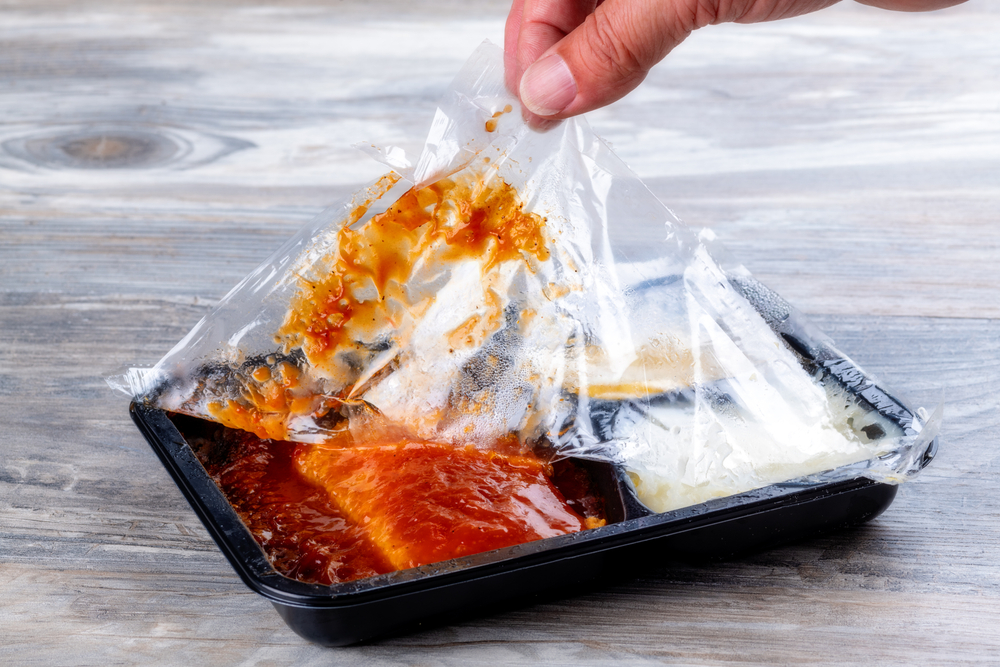
As a matter of fact, there are pros and cons to both, it has to be said. Ready meals are quick because all you need to do is reheat them, which is great for when you’re short on time. Pre-sliced and peeled vegetables take out the hassle of chopping and peeling. If such meals are on offer, they can work out a little cheaper – all very convenient for our busy lives.
However, do you really know what is in a ready meal? Cheap meals will most definitely have sub-standard ingredients. Those cheap chicken nuggets? They’ll definitely contain chicken, but which parts of the bird? Let’s not even think about generic hotdogs! Not to mention the fillers and preservatives that are added to each meal.
Most pre-prepped meals contain something to make them more palatable, whether more salt, fat or sugar, not to mention the additives and preservatives. In addition to those ‘extras’, these meals contain very little nutritional value. Not to mention that some of the ingredients could have been frozen for months, even years, but still advertised as cooked freshly on-site!
To put it another way, with home-cooked meals, you know what is in them; you have much more control over salt, fat and sugar (including carbohydrates) content. You have bought the ingredients fresh from the store, and you can add as many healthy ingredients as you see fit. What’s not to love?
Why cooking at home is more cost-effective.
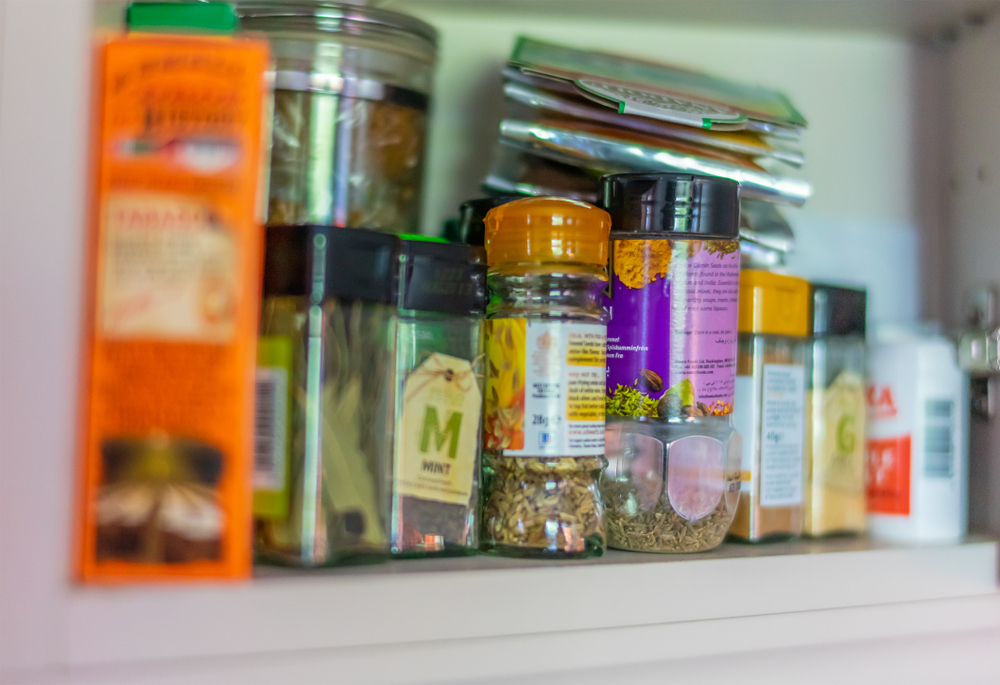
Some ready meals will always come in a little cheaper, such as a bargain beef lasagne priced at a couple of pounds. Yet cooking from scratch wouldn’t cost an awful lot more. It is a great family meal and can be kept refrigerated for a few days or freezes well if you live alone. You know it’s fresh, you know it has nutritional value, and you know exactly what’s in it.
Do you regularly buy a sandwich and a drink, maybe a bag of crisps, for lunch at the office? Or a coffee on the way to work? That could average at least £3-5 per day, the same price as you could roast a chicken. With the chicken, you get dinner for the evening, shredded leftovers for a sandwich, or even whip up a chicken salad to take with you for lunch.
By the same token, a couple of large portions of chips from the chip shop could feed a family of 4, but where’s the nutritional value there, or the scope to reuse or stretch ingredients over more meals? Whereas some rice, peppers, onion and some of that lovely leftover chicken will serve up a better, more nutritious and filling meal.
Don’t forget to use stockpots, seasoning, herbs and spices to enhance the taste and throw in lentils or chickpeas to bulk out your meal at a low cost.
Tips and tools to help keep food bills lower
Planning is essential to help keep costs lower, and it is well worth the time if you do so. Plan each meal for the week, remembering to use leftovers too, if you can. Once you have a plan in place, it’s time to make your shopping list.
Making a Shopping List
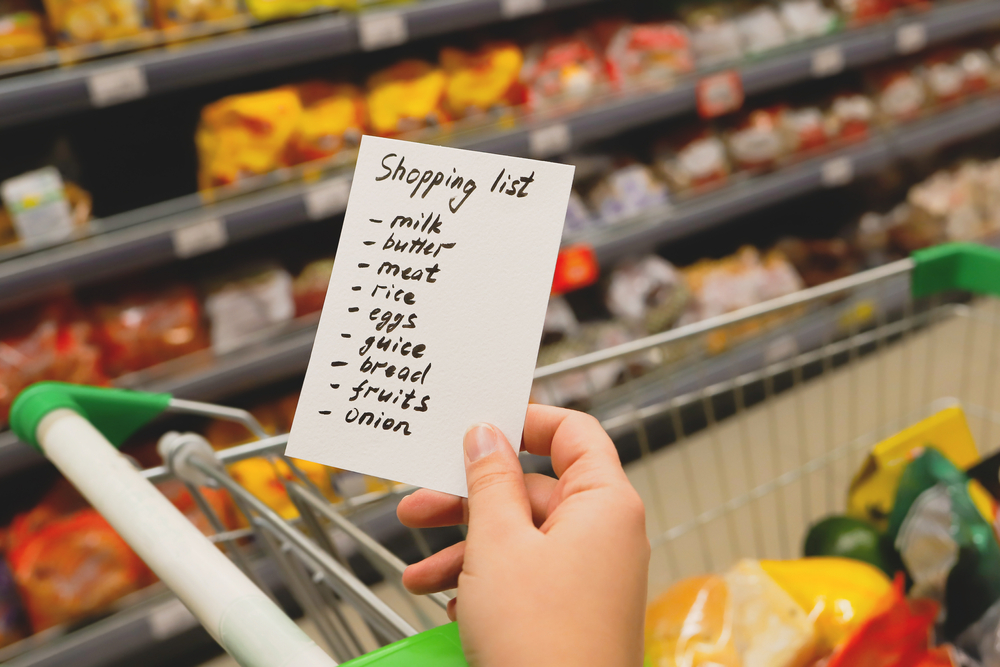
Making a list can seem daunting, but there are many ways to do it. Maybe you prefer good old-fashioned pen and paper? Do you use an app such as Alexa or Google Keep? Does your go-to supermarket hold a list of your favourites online? Either way, a list is fundamental to help stop overspending and buying items you just don’t need. If you shop online, you will automatically see any offers and promotions as you shop. Additionally, you don’t wander the aisles getting tempted by non-essentials!
Not everyone has a tonne of free time. Still, suppose you can set aside a few minutes. In that case, you really should price compare items between your local supermarkets, even if you have groceries delivered. Trolley.co.uk is a great site that can compare thousands of things for you, including multi-buy options and promotions, over various leading stores, and is updated daily.
Your initial shopping trip can seem expensive if you don’t have much in the way of storecupboard ingredients, such as herbs, spices, pasta, rice, nuts, chickpeas etc. However, once you build up your stocks, some of these ingredients last long and don’t need buying often. Keeping these essentials in can allow you to whip up a meal by adding only a handful of other ingredients.
By Fresh Produce
Buy fresh produce when it is in season; you’ll find prices are considerably lower. And don’t forget, some veg also naturally has a longer shelf life, such as carrots, celery, onions and potatoes. You can plan to use these at the end of the week, using up items that don’t last as long sooner.
Shop later in the evening when many foods are discounted due to shorter shelf lives, or sell/use-by dates being that day or the next. Meat and some vegetables can be frozen to use when you need them. The reduced aisle can have some fantastic bargains!
If you shop at the same stores regularly, invest in their loyalty schemes. Many of these ‘learn’ what you buy regularly and send out tailored offers for you to use.
Bulk buy and freeze
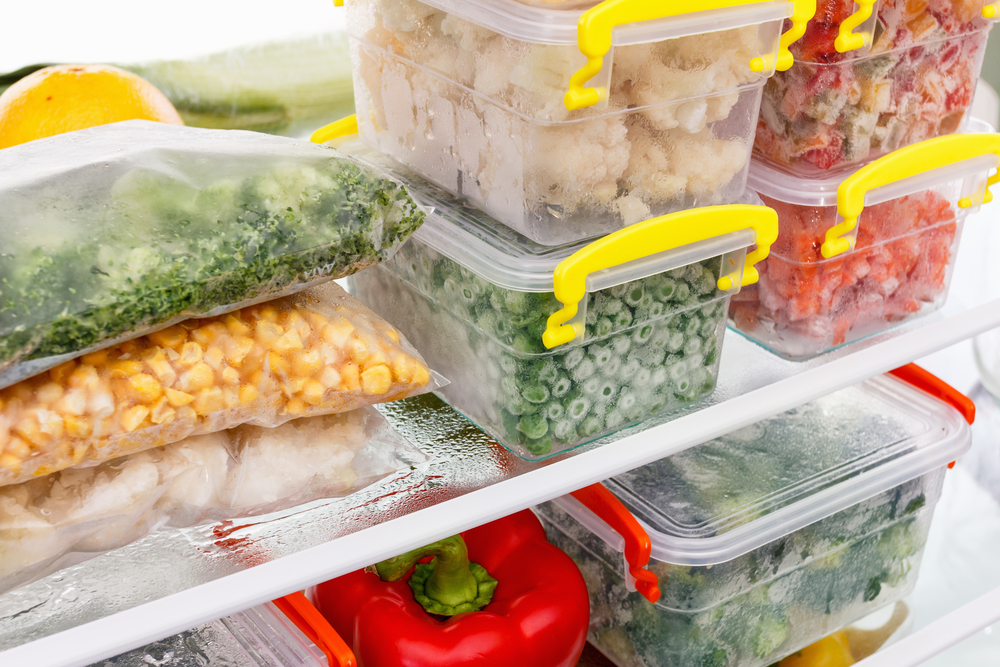
It is convenient having frozen vegetables in your freezer, too, for those days where again, time may be an issue, saving peeling and chopping. Spinach, garlic and ginger are good staples to keep in at all times.
Where you can, buy in bulk. Larger meat packs often work out cheaper and freeze well; even cheese can be frozen. Consider stores like Costco too; not only can you buy ingredients in bulk, but other household items too.
If you use social media, you will find groups on Facebook giving great advice and tips on how to cook on the cheap, and Pinterest has some amazing recipes. Use local Facebook groups to see if anyone is giving away cookbooks, or visit eBay or Amazon for good condition second-hand ones that won’t cost the earth.
Be super-savvy and give batch cooking a go using one-pot recipes or slow cooker recipes. You’ll find you can use cheaper cuts of meat if you cook it over a longer time, for the same great taste. Casseroles, stews, soups, even roasting joints can all be cooked this way, and leftovers freeze well.
Fresh dump bags
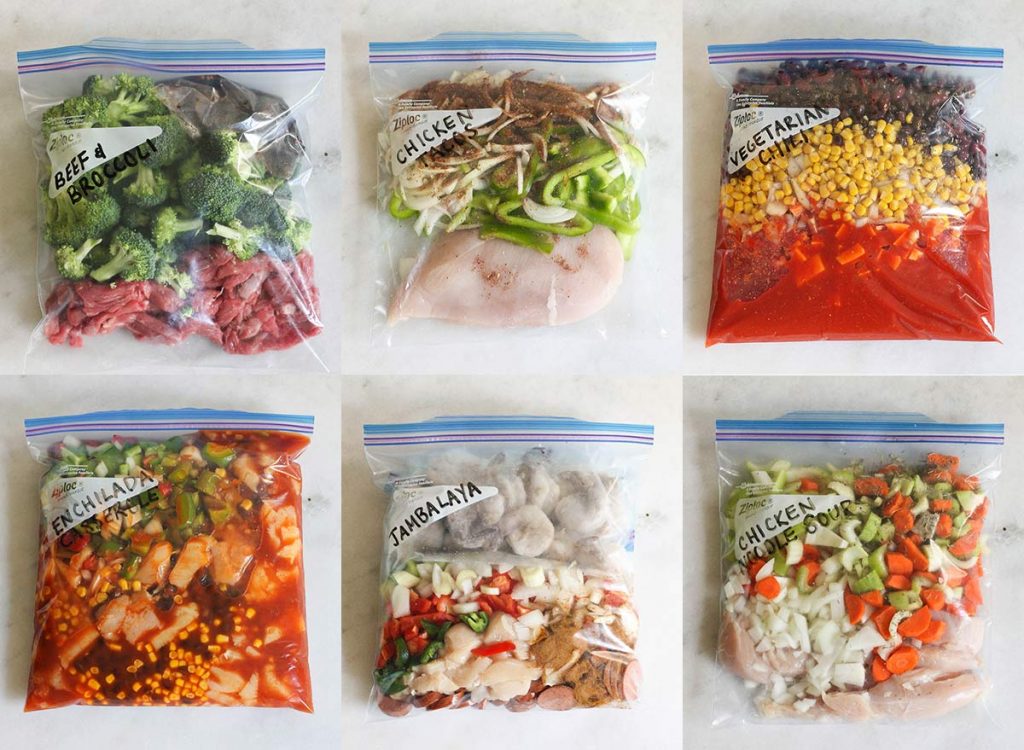
Another popular way of meal-prepping is called ‘dump-bags’. While not attractive sounding, you basically get all of your fresh and raw ingredients together, chopped, peeled etc. and put them in a Ziploc bag in the freezer, still raw. For example, this could be minced beef, chopped onions, garlic, mushrooms, and seasoning, ready to make any number of recipes. You just need to get out what you need when you need it, defrost and cook! Prep at the weekend, and you can save time after work in the evening.
In like manner, make base sauces in advance, for example, gravies or tomato bases for spaghetti bolognese, lasagne, chilli con Carne etc. Creamy sauces are also good to freeze if you reheat them slowly after.
If you are cooking for one, can you share ingredients and meals with another single friend – you get the advantage of bulk buying, but halving the cost!
Do you have leftover wine? (Yes, we checked, it is a ‘thing’!) Freeze what’s left using an ice cube tray, then you don’t have to buy expensive small bottles just to cook one meal. Or, use the wine cubes for your glass of wine on a hot summer’s day!
To get the most out of your food, proper food storage is a must too. There are hundreds of tips online, from storing strawberries in a mason jar to wrapping salad leaves etc., in a paper towel and stored in a Ziploc bag in your fridge. You can even add longer life to your ingredients depending on where you keep them in the fridge! This quick guide from Good Housekeeping shows you how.
Vegan based meals and Meat free days
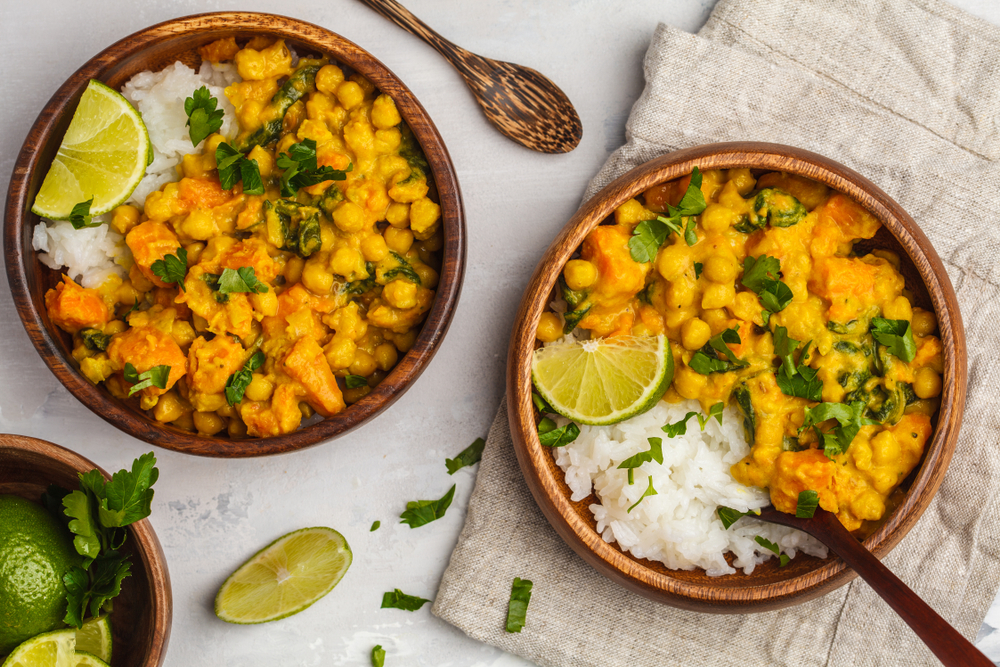
We’ve talked a lot about meat-based recipes, but of course, meals don’t have to be centred around it. There are thousands of online meat-free recipes, whether you are vegetarian or vegan or not, that use vegetables, rice, noodles or even meat substitutes. Why not consider meat-free Mondays and do your bit for the planet simultaneously?
Thousands of online recipes can help you eat well on a budget – whether you’re a student or a family. Maybe you just fancy a ‘fakeaway’ rather than paying takeaway prices and delivery fees.
Too Good To Go is a genius idea with an app that notifies you when food can be collected locally at a discounted rate. The company aims to reduce food waste, and many stores have signed up rather than simply throwing food out at the end of the day. Local shops, cafes, and restaurants can sign up. Download the app, set your location and the app will notify you with what is ready to grab and a time frame to collect. You can buy a range of things at a discounted rate, from bags of vegetables to leftover carvery meals!
Growing leftovers
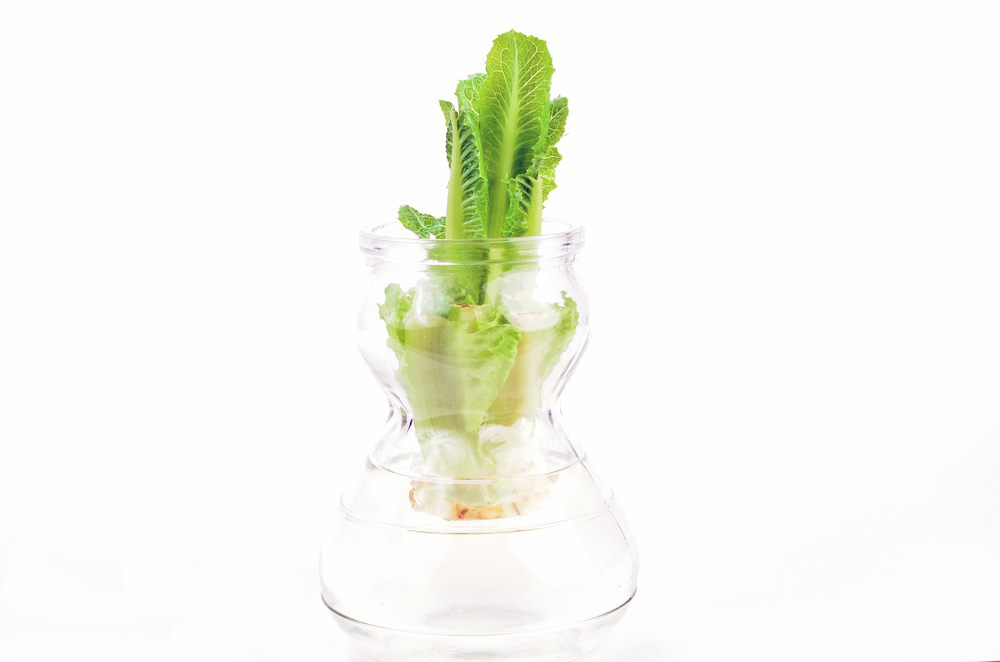
Yes, you read that right! Rather than discard much of your vegetables, you can regrow certain types. Spring greens, lettuce, spring onions, celery, garlic cloves, even a potato! You could use the seeds from a fresh tomato to grow tomato plants and even do the same with peppers or strawberries!
Square Mile Farms has this quick guide on making more of your kitchen waste! Furthermore, take a look here for more awesome tips if you want to expand your gardening skills and grow much more from pots, not just your leftovers; there are some great ideas in this blog!
All things considered, having some quick ready meals in your freezer for those days when you are short on time or energy isn’t going to be the end of the world, but long term, they really aren’t all that healthy. Even if your grocery bill works out a few pounds extra per month, can you really put a price on your health?
